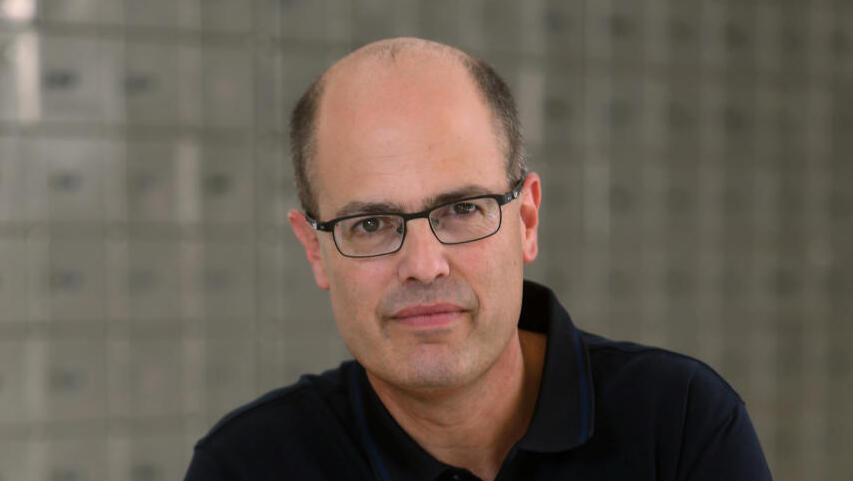The high-tech industry serves as the most important growth engine of the Israeli economy and is potentially one of the sectors most affected by the global economy. The main audience for high-tech companies, whether investors or customers, is overseas. Additionally, international technology companies operating in Israel contribute significantly to its economy. This exposure makes startups and high-tech companies particularly vulnerable to a variety of financial sanctions, whether overt and direct or covert and informal. Although industry sources have indicated that there has been no significant damage to the investment scope or revenues of Israeli companies so far, there is uncertainty about future developments.
“Israel’s high-tech industry has achieved its status thanks to its strong connections with global markets,” said RISE Israel, a nonprofit, independent think tank dedicated to promoting a competitive, innovation-oriented economy. said Uli Gabai, CEO of the former SNPI. . Gavai noted that half of Israel’s total investment in research and development comes from outside the country, highlighting the potential impact if Israel becomes unwilling or afraid to invest.
Four View gallery


Protest against Israel at Columbia University
(Photo: Reuters/Caitlin Ochs)
In the short term, interviewees do not see obvious harms in the high-tech sector. “I always say that emotions, anecdotes and data should be separated. They’re all important. It’s important to monitor them all and pay attention to them, but it’s important not to confuse them.” , explains Avi Hasson, CEO of Startup Nation Central. Former Chief Scientist of the Ministry of Economy and first Director of the Israel Innovation Authority. “Looking at the data, we have yet to see a reduction in the amount or scale of high-tech investment or a significant impact on the profits of high-tech companies as a result of the war.Over the past two years, high-tech investment has significantly increased. However, most of it is related to the global business cycle, and similar declines are seen in other parts of the world. In the report we published 7 days to 6 months later, although there was a decline, it was comparable to the decline in the United States over that period.”
Four View gallery


Uri Gabai
(Photo: Miri Davidowitz)
Eden Shochat, equal partner at Aleph Venture Capital Fund, added that investing itself has not declined. He predicted that investors who have already invested in Israel are likely to reinvest, but it may take time to attract new investors. Although there are sporadic instances of potential customers refusing to do business with Israeli companies, the overall impact remains limited.
However, Gabai expressed concern, acknowledging that investment in Israeli startups has declined in recent months. “There is no doubt that investment in Israeli startups has declined in the six months since October 7 compared to the six months before that,” he said. “Several stories are converging here. One is the slowdown in the global economy, from which the world has not yet recovered. Investment is falling in the US and Europe as well. The second trend is is the beginning of instability in Israel. And there are people who morally don’t want to invest in the state of Israel, but that may come from anti-Israel and anti-Semitic sentiments.
Four View gallery


Eden Shochat, Aleph Equal Partner
(Photo: Nimrod Glickman)
“There are quite a few Israeli companies that are still finding investment. It’s all about the companies. They’re not superstars. That’s why they don’t invest in them, whether it’s the global recession or the instability in Israel. I don’t know how to accurately analyze whether there’s a reluctance to do that, because most of the investments in the last two quarters have been in very successful companies, very good companies, very good companies. is probably struggling, and what we’re concerned about is that ultimately it’s going to continue to struggle, even though this game belongs to five or six very well-known companies. This was not previously a feature of Israeli high-tech companies.The number of companies that received investment was 60 more, but in the end it was relatively large. It’s a small group of companies.
Another issue recognized by all interviewees concerns academia, an activity important to the flourishing of Israel’s high-tech industry. “On an anecdotal and emotional level, we’re starting to see some worrying signs,” Hasson said. “The situation in academia is not good. Publications in scientific journals, collaborative research, participation in conferences, and joint projects are affected. The accumulation of anecdotes there is alarming and shows that the problem is Of course, this is also associated with high-level research.”The technology industry includes high-tech companies, including life sciences, climate technology, agricultural technology, and artificial intelligence. There are many sectors that are starting, but this is a worrying impact, and the impact is worse than in the high-tech sector. ”
Shochat also acknowledged the reluctance of foreign researchers to collaborate with Israeli researchers, saying, “There are certainly problems, especially in the area of AI, which is causing great harm to Israel.” This is because there is a lot of cooperation with the academic community there.” Although there is currently no major impact, the field of artificial intelligence is rapidly shifting away from academic research, which could have a negative impact on national capabilities. The transition to practical application is almost unprecedented, and the rapid movement and the fact that a significant number of academic sources are involved in it over time could make this detrimental. ”
Gavai estimated that the problems in academia run deeper behind the scenes. “I have heard that there are many cancellations of science and technology cooperation, but while there is one that is being carried out publicly, there are five that are being carried out in secret.No one will admit it, but they do not want it. It’s clear to everyone that we should cooperate with Israel. ”
Four View gallery


Abi Hasson
(Photo: Avi Hasson)
Hasson added that this aspect could also be directly relevant to high technology. “I’m not really worried about people who declare they’re boycotting Israel, who demonstrate with the Palestinian flag, who say they won’t do business with Israel, because they’re the ones that I don’t see. I’m concerned about what’s going on behind closed doors that I can’t see, and whether someone is saying, “I don’t want to do this project because of risk or uncertainty or because of an ideological decision.” The thing is, you can’t always know what’s going on when you say, “Let’s stop.” There’s no way a customer can’t renew their subscription by sending a letter saying they’re quitting their job in protest of genocide. ”
Shochat believes that the negative situation in academia can be used for good. “We need to consider solutions, such as establishing research institutes and bringing back academics from overseas,” he said. “Because of anti-Semitism on campus, we are preparing for the return of people, including tenured academics, who could never have imagined wanting to come to Israel; We need to seize this opportunity.’ We will help them open the institute. ”
Another area that Shochat sees as problematic is the entrepreneurs themselves. “We see a lot of entrepreneurs leaving Israel. This is a danger that can lead to a decline in critical mass, which is very important when we talk about entrepreneurs and talent. It’s worrying me.” It’s not a flood or a major flood, but Israel’s real challenge is internal, not what outsiders are doing to us. ”
Despite the challenges, some points of optimism can be identified. “This is a very strong statement considering that in one week he invested $1 billion in Nvidia’s acquisition of two Israeli companies,” Hasson said. “When Sequoia re-expands its operations in Israel, when General Atlantic makes new commitments, these bode well for the global market. That’s why it’s important to keep them our greatest weapon. One of the things that you can do is come and say, “The most important companies in the AI space say that Israel is the most important place for AI outside of Silicon Valley. ”
Gabai added: “I’m relatively optimistic because at the end of the day, tech is a game of investing to make money.” Unless there is a tendency to move away,” he added. If there is an Israeli company that excels in cyber or AI, some investors will invest in it because it is a good investment. ”

